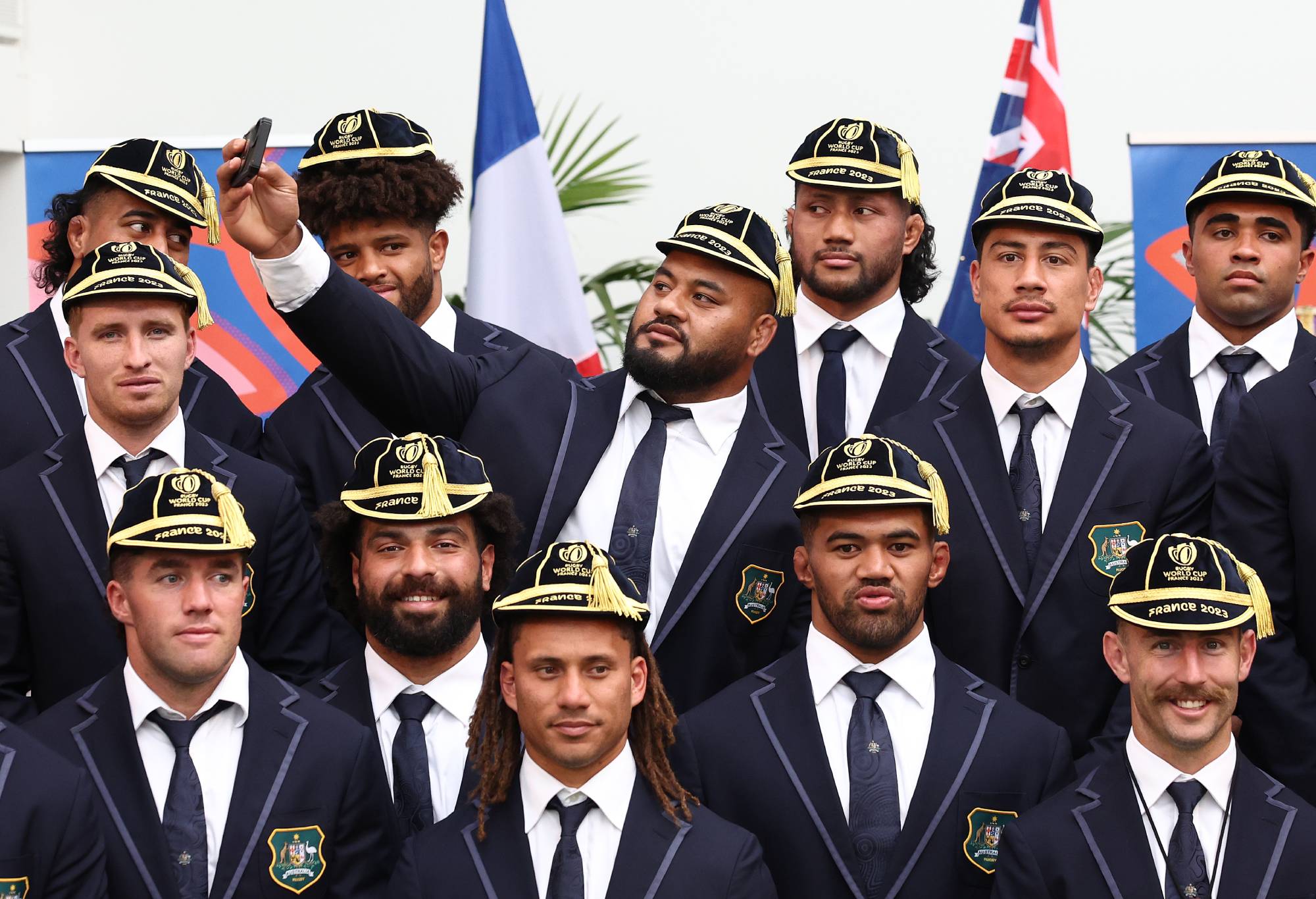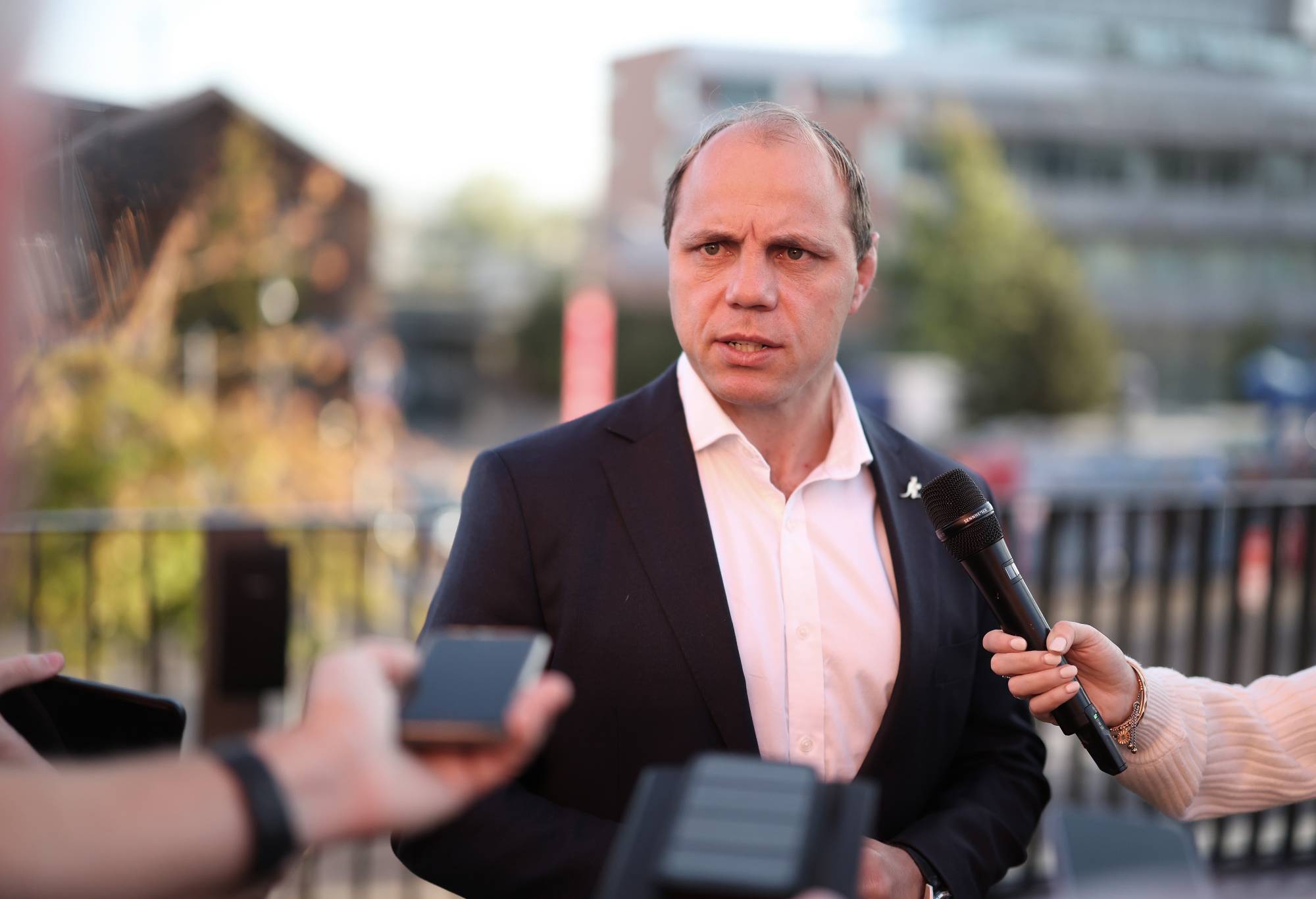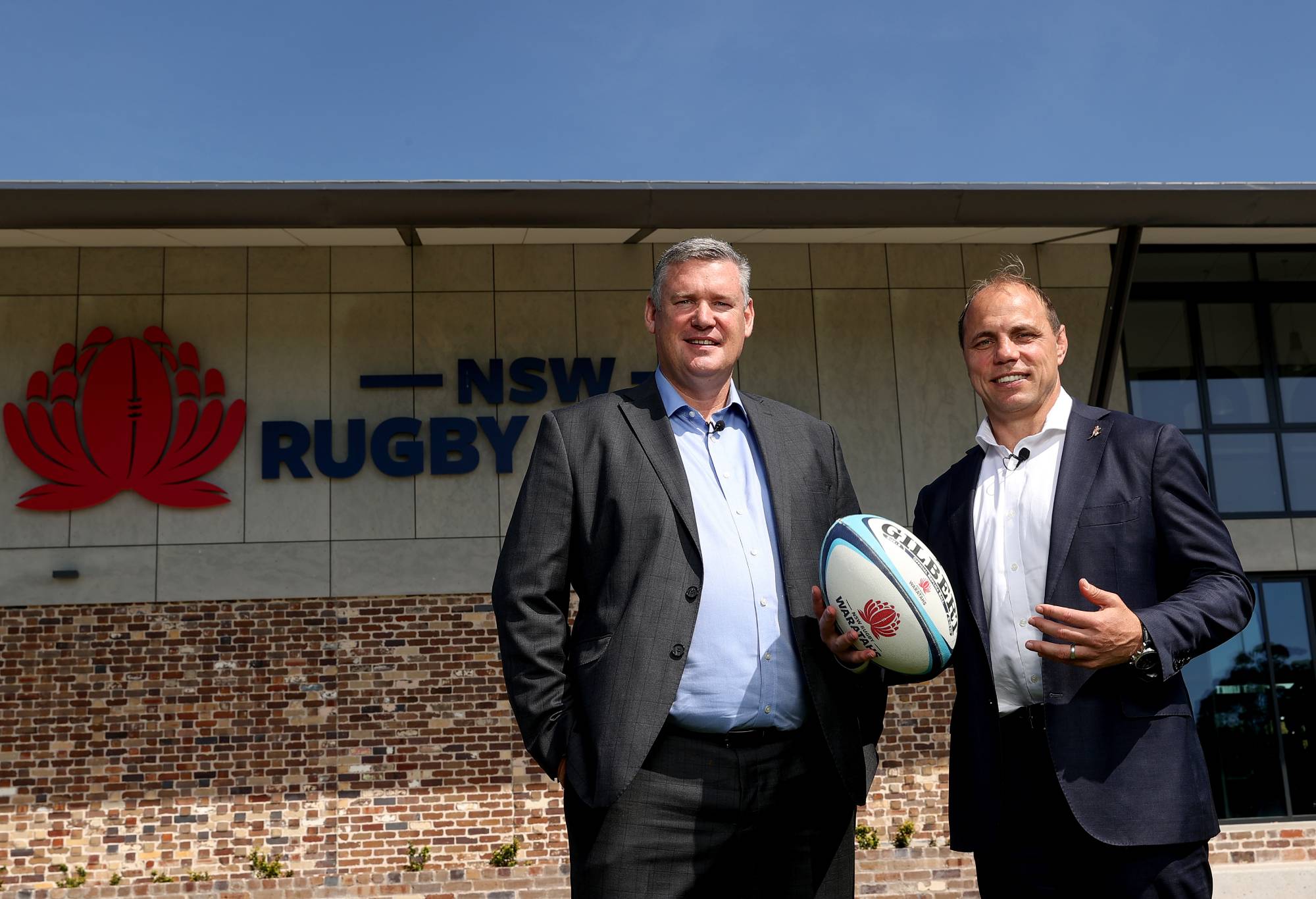As Rugby Australia celebrated the NSW Waratahs formally jumping on board their “integrated” ticket, the governing body said they won’t rush to name a replacement for Eddie Jones as Wallabies coach.
Yet, as RA chief executive Phil Waugh once again attempted to ease fears of mismanagement and hostile takeovers by way of asking his stakeholders to trust the governing body, the fact there are so many plates spinning is doing little to allay fears following one of the worst years in Australian rugby history.
Indeed, as RA attempts to usher through reform measures, including the move to an aligned system, the national body is without a head coach – or the person the coach will report to.
That appointment is not likely to occur any time soon, with the national body intent on naming a new head of director of high-performance by Christmas before moving onto choosing Jones’ replacement.
Waugh was reluctant to “commit to a timeline” but told reporters that the director of high-performance would be in place to oversee the process of finding the next Wallabies coach.

Taniela Tupou takes a photograph during the Wallabies Official Rugby World Cup Welcome Ceremony ahead of the Rugby World Cup on September 01, 2023 in Saint-Etienne. (Photo by Chris Hyde/Getty Images)
“That Wallaby coach and Wallaby environment will report to the director of high performance within that domain and we’ll be really clear on structure and perimeter,” Waugh said.
“I’m less concerned around the timeline of [naming the Wallabies coach]. I think it’s about getting the best candidate for head coach and the best candidate for head coach also brings a really strong assistant coaching team and structure around them.
“It’s not just around the head coach, the head coach is critical, but how to get the best people in the director of high-performance role, as well as the head coach, to attract the best talent around the world to come and coach the national team.
“I know a lot of focus goes on the head coach, but the head coach needs to be able to create a culture but also attract the best possible talent to come through within the environment.”
But the fact that RA is still weeks away from naming the new director of high performance and potentially months away from naming the new head coach is doing little to help promote the governing body’s integration push.
It’s not just the absence of key figures at the top of the Wallabies tree that is concerning the Super Rugby franchises, but the lack of detail across RA’s entire plan to move to a system where the governing body oversees the high-performance and commercial portfolios across the entire professional arm of rugby in the country.
In principle, all five Super Rugby franchises, including the Brumbies and Reds, agree that greater alignment with regards to high performance is essential.
Under the proposed plan, RA would oversee an aligned high-performance structure, which will involve all players, coaches and rugby staff contracted by the national body and overseen by the new director.
While Super Rugby franchises would still be consulted in the decision-making of contracted figures at each team, the construct of the board would be swayed more heavily to RA.
That would extend to steering certain players to other franchises it is was deemed in the interest of the men’s or women’s national teams.
“We’d be working with RUPA [Rugby Union Players’ Association], it’s still got to be what the player wants and where they want to play, but ideally you’re … selecting players in squads that’s going to be in the best interest of the national team,” Waugh said.
Where the Brumbies still have issues with RA’s leadership is the lack of detail regarding who is running the programs and how they work.

Rugby Australia CEO Phil Waugh speaks to the media in Saint-Etienne, France. (Photo by Chris Hyde/Getty Images)
With noise that RA is entertaining returning to four Super Rugby franchises despite Waugh’s “commitment to five”, the Brumbies also want to ensure their own future in Canberra is safe.
Waugh moved to address those fears, saying the Brumbies’ future in the nation’s capital was secure.
“We’ve already given that guarantee,” Waugh said.
“That’s already been committed to the Brumbies and I’ve got a really close relationship with the chair Matt Nobbs and Phil Thompson, the CEO, and we’re making good progress.”
The Roar has been told the Brumbies are waiting for that commitment to be put in writing.
Waugh once again said it was vital RA continue to build trust with its stakeholders to ensure they could get their reform measures across the line.
“We need to build that trust and trust doesn’t happen overnight,” he said.
“This is the first step. What’s really important, and I’ve talked a lot about this, is actually just connection and unity.
“Right now, it’s more important than ever for the whole game to come together for the game of rugby in Australia and I think it’s been a really sensible approach and discussions with New South Wales rugby to be the first Super Rugby club.
“We need to build that trust and we’re the first ones to put up our hands and say we need to put the right capability into RA to actually drive this system. But most importantly, we need to have that influence and leverage to employ those people, and so it’s a really important step today.”
Asked whether RA could develop that trust with chairman Hamish McLennan on board, Waugh said the national board was making strong progress despite the tough year on the field.
“That’s not for me to answer as CEO. We’ve got the appropriate governance around the game and I think this is a really good step forward,” he said.
“We’re making good progress across the strategic direction.”
Waratahs chief executive Paul Doorn said it wasn’t so much of a leap of faith, but a necessity to hand over control to RA.
But even he admitted there was still much left to nut out.
“Not that I want to talk in metaphors today, but the old saying [is] ‘if you build it, they will come.’ Look, we do believe that the structure will follow the strategy,” said Doorn, sitting alongside Waugh at Tuesday’s announcement.
“I don’t think it’s actually that big a leap of faith.
“From our perspective, we think we have trust in Rugby Australia. I think Phil’s demonstrated to us that there is a plan. We’re working through exactly what that looks like for our club. And we’re hopeful that by working together, we’re going to get a much better outcome than five clubs working separately.”

NSW Waratahs CEO Paul Doorn and Rugby Australia CEO Phil Waugh together following their historic announcement at Daceyville on November 14, 2023 in Sydney. (Photo by Brendon Thorne/Getty Images)
Doorn acknowledged the entire rugby community was struggling financially, but said their decision to hand over the keys to RA wasn’t down to being insolvent.
“I mean, the drain on resources is one way to look at it. But our goal as a consolidated entity is to try to pump as much money into community rugby as we possibly can,” he said.
“If you think about this particular proposal, we actually get to ring-fence New South Wales Rugby so it gets to focus solely on the community game.
“Last year, we spent $6 million on developing the game in New South Wales.
“From a professional perspective, moving back into the new stadium, there’s no doubt about it, we would have loved to have had a larger crowd, which impacts our financials, but I certainly wouldn’t use the language, “financial brink” – we’ve just said there’s definitely been some strong headwinds in that space and we just got to be sensible about how we deal with it.”
Nor did Doorn believe RA was attempting a takeover of the states.
“I guess from our perspective, it hasn’t felt like it’s been a takeover,” he said.
“We’ve sat down from the very beginning, worked through the strategy, worked through what the implications were and then I think, again, in good faith and good trust, we’ve actually got to a point where both parties should be pretty happy with the way we’re going to move forward. So it hasn’t felt like a takeover from our perspective.”
Waugh agreed: “Well, we don’t see it as a takeover, we see it as integration and partnership and alignment and I think some of those concerns around the location of the Brumbies and the commercial elements are seen as a takeover, but we don’t see it like that. At the end of the day, our member unions and the community own rugby, not Rugby Australia.”































































































